The South Carolina High School Strength Coaches Association (SCHSSCA) just held their 5th Annual Strength and Conditioning Clinic this past week in Roebuck, South Carolina at Dorman High School. In attendance were high school strength coaches as well as some performance coaches from the area. Before I get into the details of the clinic and speakers I have to say that Dorman High School has one of the nicest High School weight rooms I’ve ever been in and it’s massive!
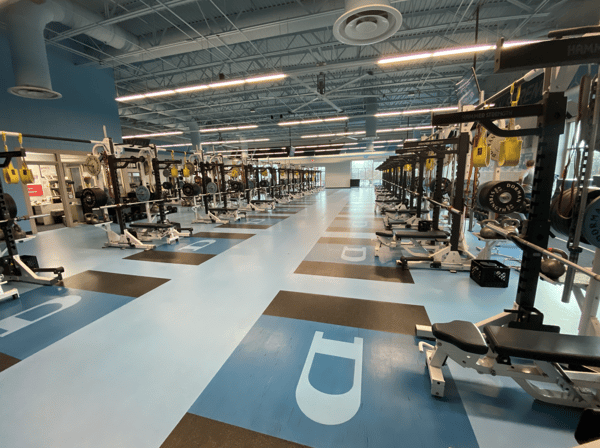
Yes, that's a high school! Coach Eric Cash is the Head Strength and Conditioning Coach at Dorman High School who has the pleasure of working in this beautiful weight room every day. I got linked up with Coach Cash last year at this event through Total Strength and Speed’s David Abernethy to be a sponsor and after attending last year's event I knew I would be back! The chance to connect with high school strength coaches is only part of the reason. This year Coach Cash brought in some fantastic speakers that not only shared technical details about coaching, but also how they use their experience and self-awareness to impact the athletes they coach, in and out of the weight room. Transparency, relationships, culture, buy-in and character development were the trend topics amongst the speakers.
My role at VertiMax has taken me to numerous clinics and events over the past 5 years. I can typically tell you how a clinic will be by the atmosphere during registration which is typically an hour before the first presentation. When I first walked into the Dorman High School weight room I was of course memorized by the scale of the weight room, even though I’ve been there before. At the table near the entrance was Coach Cash welcoming everyone to the event by thanking them and shaking their hand. For a clinic to be successful the attendees need to feel welcomed and comfortable and Coach Cash set the tone for the rest of the day by being personable and and opening up his facility for all attendees to see. This may seem very simple, but when you’re welcomed, greeted, thanked and offered to “enjoy the weight room” it’s a more inclusive feeling than just being told to sign in and wait for the event to start (yes, that has happened).
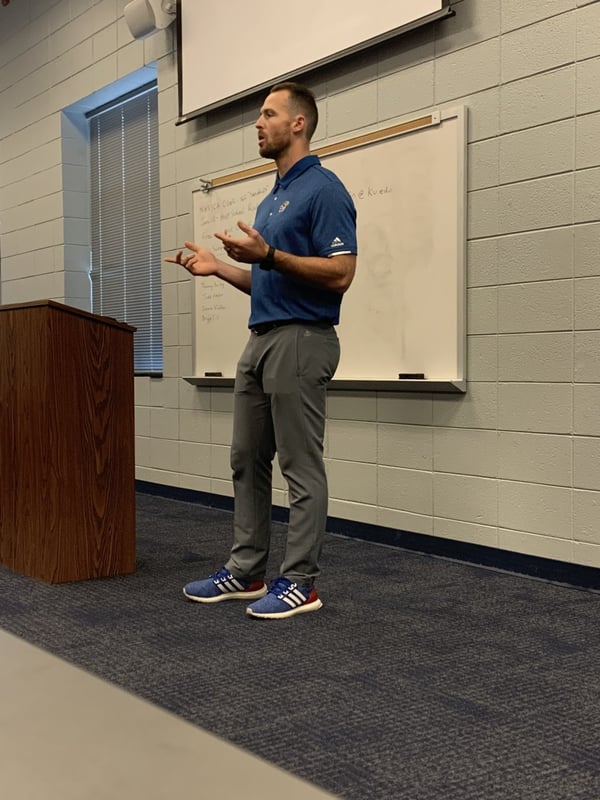
The first speaker of the day was Director of Football Strength and Conditioning, Zac Woodfin from University of Kansas. Coach Woodfin presentation was on “4 Pillars of Performance” which included Mindset, Movement, Nutrition and Recovery. I really enjoyed his presentation and my favorite segment was the Mindset piece and “5th Quarter Coaching”. Coach Woodfin understands that being a coach is more than the weight room so he practices and instills disciplines that help his athletes for when they leave college and prepares them for life. Zac goes into great detail on how he prepares his athletes for life and one detail I enjoyed the most is that he puts his athletes in challenging situations and even some situations that fail because he wants them to learn the difference between a Growth vs. Fixed mindset. Too many kids, athletes, and people in general have the mindset that they’re capped out, they’re not worthy, or full of a negative mindset and negative self-talk. There is always room to grow and develop and you can learn from mistakes. By coaching athletes to have a Growth mindset they’re getting prepared to overcome adversity in life now and after college.
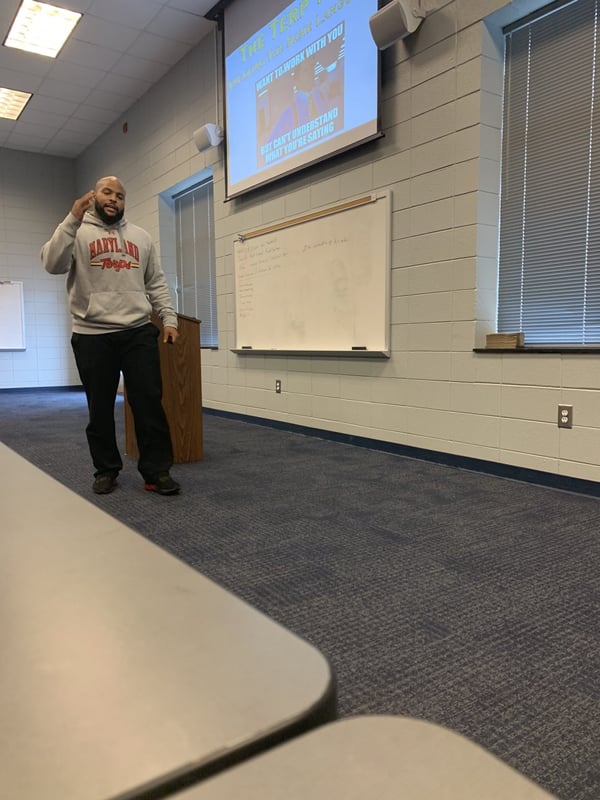
The next presenter was University of Maryland Director of Football Strength and Conditioning Ryan Davis. Coach Davis started his “Guiding Principles” presentation off with “Relationship First”. As I alluded to about this clinic in my introduction. It’s more than just getting strong and conditioned. It’s about being human, treating others as humans and developing an athlete's character. Ryan says “Love is spelt with time” and what he means by that is “the time you’re allowing them (the athletes) to be a part of your life”. Coach Davis does this by having a time setup in the off-season and summer for his staff a chance to bring their kids in the weight room for an hour. If you have toddlers this may sound chaotic and I’m sure it is, but when you have your family with you and they’re around the athletes ``the athletes get a chance to see that the staff is more than just a coach, and that they’re also fathers and husbands”. The coaches are holding athletes to a standard and at times there will be some tough conversations. Coach Davis wants the athletes to think of how they see him and the staff with their family and that the coaches aren’t treating them any differently.
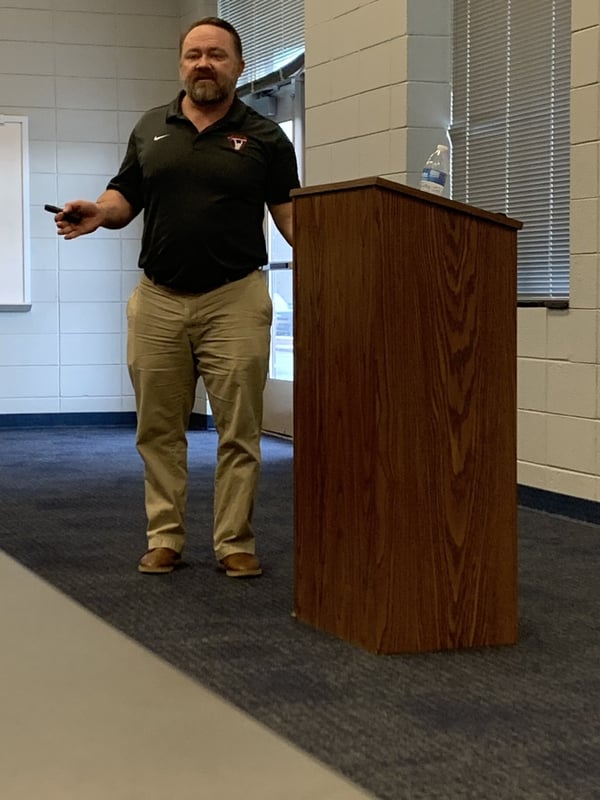
The third presenter of the day was mastermind and powerlifter Travis Mash of Mash Elite Performance. Travis is not just a powerlifter he actually is one of the only lifters to bridge the worlds of power lifting, olympic lifting and athletic strength and conditioning all together. Travis presentation was on “Power Development vs. Power Expression”. Which is a huge topic for discussion in the strength and conditioning community, but before he gets into the details of his presentation Travis stops and talks about buy-in. Travis says you can be the strongest coach and have the best programming, but none of it matters if the athletes don’t buy-in. Which can be very humbling, especially to the younger coaches who just want to focus on athletic development and skip the relationship building and culture building. Travis also speaks to the olympic lifts which are very hard to master and that they take an experienced and skilled teacher to coach athletes on them. Some of the best mentions here from Travis is that if you don’t know how to coach olympic lifts then you shouldn’t, but It is okay Travis says if you can’t teach them because there are “many ways to skin a cat”. Travis introduces lower risk movements such as trap bar jumps, clean and snatch pulls, squat jumps, and med ball throws. All of these movements can prepare athletes for future olympic lifting movements.
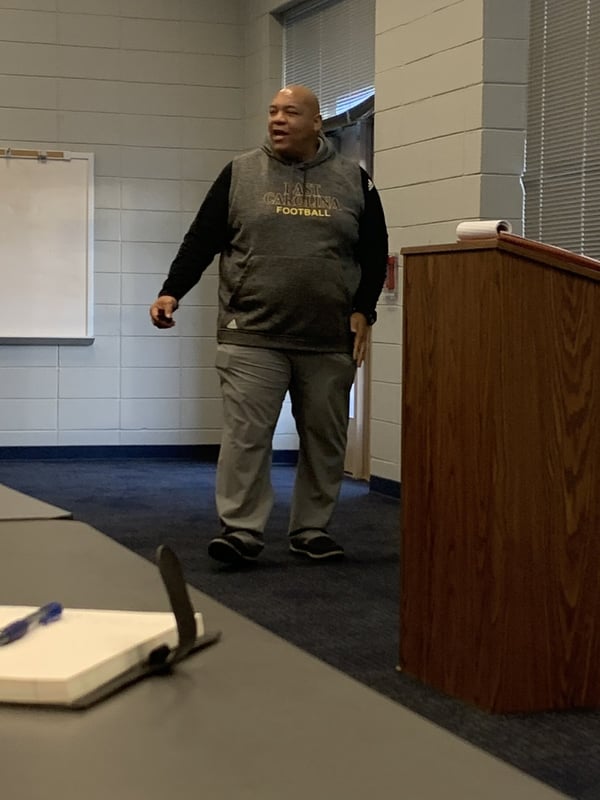
Director of Football Strength and Conditioning for East Carolina University, John Williams finished the day with his presentation “Training is a Culture” and his “Training Pillars for Success”. One of his very first slides sums up what he’s all about! - “Culture is not built by what you proclaim. It is built by what you practice, promote and permit”. Now that’s loaded! John has his core values that he instills with his athletes which include high character, inspirational, work ethic, mental toughness, fundamentally sound and disciplined, passion and intensity, relentless pursuit of perfection and your last name is ECU. Coach Williams really touched on a part of his culture that I think we should all dig deeper into and understand which is “we are what we repeatedly do” quoting Aristotle. The example John uses is athletes saying “I have to” vs. “I get to”. This is changing a mindset and it’s not easy to do, but if this mindset change comes from the top down and the team buys-in with a growth and winning mindset it’s safe to finish the great Aristotle quote “Excellence, then, is not an act, but a habit”.
Coach Cash really out did himself by inviting these minds to all share and present at this year's clinic. Look I’m not a strength coach, but I understand that being a coach is more than just having the technical skills. It involves being a leader, being self-aware, creating a winning culture, building and maintaining relationships and developing character. All of these traits were of emphasis by all of the presenters and I was very impressed by the enthusiasm and sincerity from each coach. I’m looking forward to the 6th annual SCHSSCA event and I’m hoping to see you there.

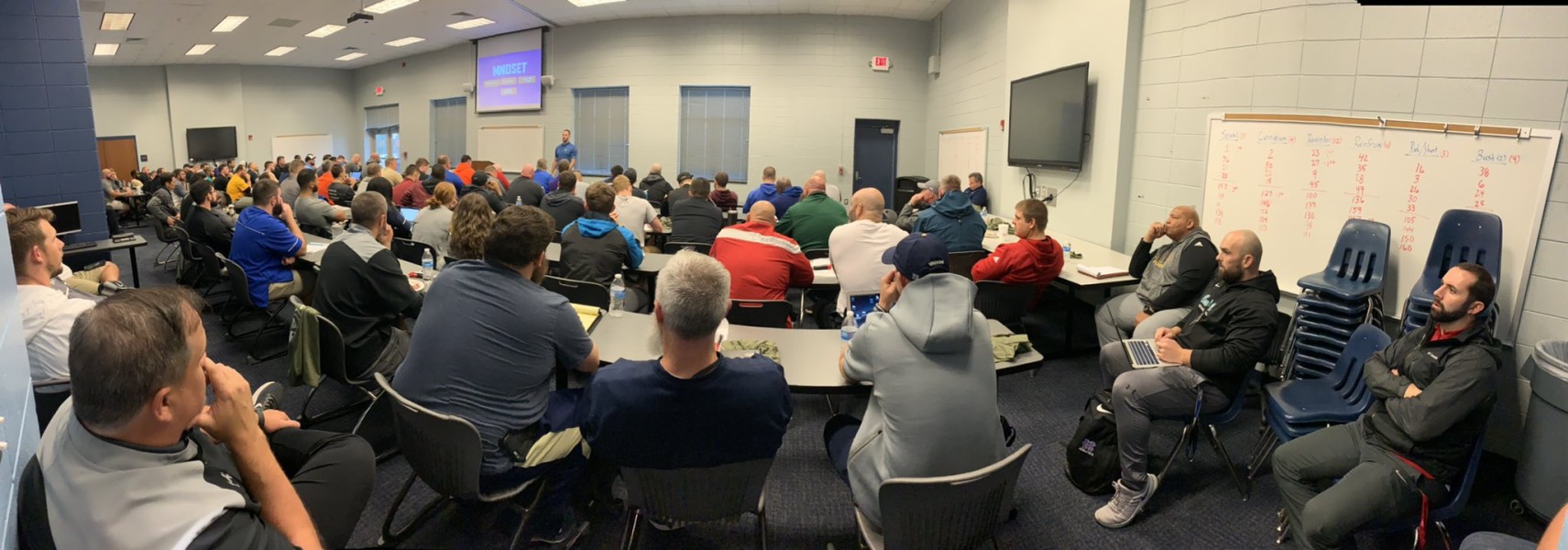


.png?width=110&name=Listing%20Image-basketball%20ladder%20drill%20%20(350%20x%20350%20px).png)













